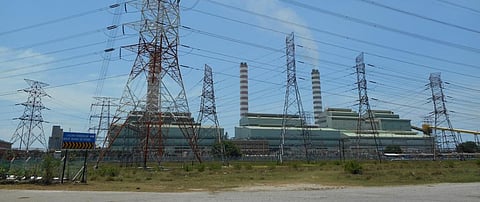Renewable energy: It is crucial to honour signed contracts
Solar and wind energy developers sign a contract with a power purchaser — mostly distribution companies (discoms) — for a prescribed period (typically 25 years) at a particular tariff rate per unit, which is based on the capital cost, land costs as well as other operations and maintenance (O&M) costs for the supply of all the generated power.
Every project has its own economics and the contract is signed based on these costs.
Due to advancements in technologies, the price of equipment is decreasing fast. Therefore, the cost of overall projects are decreasing at a fast pace, resulting in a more competitive market and cheaper tariff rates.
The lowest tariffs for solar at Rs 2.44 per unit and wind at Rs 2.43 were realised in May and December 2017 respectively. These were a complex interplay of falling prices, changing policies, market hustles and increased hopes in the sector without analysing the risks as well as practical challenges. These rates were not a logical outcome of market development.
While auctions by central agencies can achieve lower tariffs, it may not be possible in auctions by states, especially with poorly rated discoms. In 2018-19, most auctions by the Solar Energy Corporation of India drew a tariff of Rs 2.55-2.71, while most auctions by Uttar Pradesh drew a tariff of Rs 3.02-3.38.
The cancellation or renegotiation of the projects can be considered if there is some genuine disregard of power purchase agreements (PPAs) from the developer’s side. In 2017, Madhya Pradesh and Uttar Pradesh had witnessed such cases.
Madhya Pradesh Power Management Co had cancelled a PPA signed in 2015 for two 50 megawatt (MW) projects as the developer failed to set up the projects within the agreed time. Uttar Pradesh Electricity Regulatory Commission (UPERC) ruled in favour of renegotiating a signed PPA in light of high realised tariff despite competitive bidding.
No other instance has been reported to the Indian government where negotiation of PPAs between buyers and sellers of electricity from renewable energy projects has led to a reduction in tariff.
In most other cases, it is the enticement of discoms to procure cheaper power from newer, large-scale solar and wind that has left many old projects in a difficult situation. These utilities or the state governments are enticed to achieve best prices despite the PPAs being already in place for a few years based on their own commercial aspects.
Concerns about the sanctity of PPAs has taken a front-seat recently in the backdrop of controversial attempts by the Andhra Pradesh government to renegotiate clean energy tariffs with developers for some 140 power plants to revise tariff to Rs 2.43 and Rs 2.44 for wind and solar plants respectively and retrospectively. The Andhra Pradesh high court provided interim relief and the case is pending disposal at the AP State ERC.
Some cases of renegotiation of PPAs have also been seen in Uttar Pradesh and Karnataka. The estimated capacity of the affected projects is about 830 MW in Andhra Pradesh and 490 MW in Karnataka as per ICRA Ratings. Wind projects are more vulnerable to the damages caused by such renegotiations as the majority of the wind projects in India have been installed on the feed-in-tariff basis.
For the same reason, renewable energy projects signed at higher tariff rates are also at the risk of forced curtailment and payment delays.
The Union Ministry of New and Renewable Energy’s directive against opening up of PPAs and curtailment has not been heeded. Resentment is evident among renewable energy developers.
“The turmoil in Andhra Pradesh typically highlights a case of uncertainties and heightened risks, with a change in government to project viability,” Manoj Upadhyay, founder and managing director of Acme Solar, said.
These uncertainties risk pushing away the investors in the sector. Foreign investment worth $7.8 billion has been attracted by the sector in the last two decades cumulatively, of which one-third gushed in during 2017-18 and 2018-19.
Any disregard to the signed contracts will have an adversarial impact on the inflow and long-term sustainability of the renewable energy sector as these are hampering the upcoming projects.
Ensuring that signed contracts are honoured is crucial for the sector’s growth. The stakes are particularly high given than countries have bet their sovereign wealth and pension funds on these projects.
While the Andhra Pradesh situation may be temporary, it has exposed the sector to political risk, causing a major dent in the growth trajectory.
This is the third in a series of articles on India's renewable energy quest


